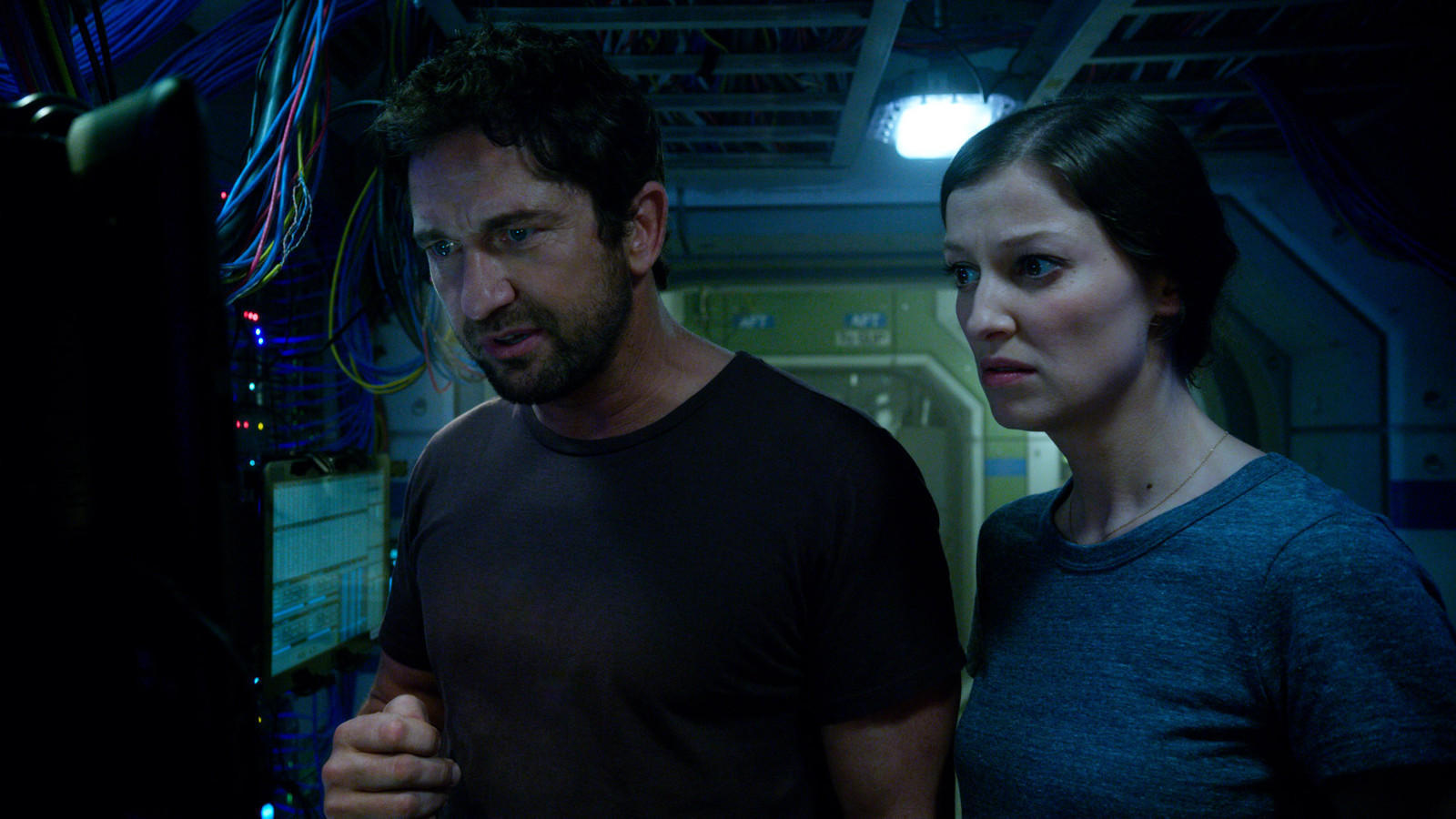Geostorm is not a good movie. Far from it, it is a bloated nonsensical mess with complete disregard for common sense or narrative convention, and every part of my critical brain tells me that I shouldn’t enjoy something so stupid, so overproduced, and so underwritten. But I have a confession to make: I had a blast with Geostorm, and not in an ironic “so bad it’s good” sense. I mean, yes, there is an element to that in my feelings for the film, but it has such an earnest attitude toward its ludicrous machinations that it’s hard not to get swept up in the thrill ride.
Set in the near future after natural disasters have forced the nations of the world to band together in a scientific effort toward self-preservation, Geostorm focuses its central conceit on “Dutch Boy,” a network of satellites around the Earth designed to influence weather patterns and prevent extreme weather events. However, when the network appears to be malfunctioning, causing catastrophic events rather than preventing them, the network’s former project lead, Jake Lawson (Gerard Butler), is tasked with returning to the International Space Station to investigate the problem before the United States is set to turn over Dutch Boy to the international community.
Now, the film is loaded with tons of nonsensical technobabble that by no means reflects accurate meteorological or computer science, so we might as well pretend that we’re dealing some space magic. The characters are all stock standard archetypes, from Jake’s bureaucratically bossy brother (Jim Sturgess) to that brother’s Secret Service girlfriend (Abbie Cornish) to the film’s secret villain whom you will be immediately able to point out based purely on casting (Ed Harris). The plot jumps between these characters willy-nilly, uncovering a conspiracy through impromptu cipherous monologues, randomly adopted alliances and betrayals, and a big ol’ countdown clock to the titular geostorm, a world-wide weather event that would domino into wiping out life on Earth.
There’s no getting around it: Geostorm is remarkably dumb. But there’s something incredibly endearing about that dumbness, probably because it comes from a place of global humanist empathy rather than cynical spectacle-chasing theatrics. This is to be expected from Independence Day‘s Dean Devlin, co-writer and director of this film, who is the guy you want for a tale of decentralizing singular cultural experiences in favor of universalism through catastrophe, and as completely ludicrous as Geostorm can be, that genuine sentiment is felt throughout. And sure, this leads to less disaster setpieces than one might expect given the title, and the humanism is undercut somewhat by the callous way in which nameless civilians are killed by the weather for our amusement, but the goofy scenarios that Devlin and company have realized on the screen are too spectacular to go uncommented upon.
This is a film where cars chase through Orlando as lightning strikes around them multiple times per second and a sports stadium blows up for no discernible reason. An approaching wave of ice turns an entire beach into human icicles and drops a plane from the sky. Lava boils up through the streets of Hong Kong, causing buildings to topple into one another like a row of dominos. There were so many moments where I squealed in incredulous delight at the bizarre spectacle of these discordant catastrophes and the soap opera drama that enabled them that I found myself not caring about how stupid every element of the film was to its core. Maybe that isn’t a very analytical way to view the experience, but the earnestness with which Geostorm wants to use effects-driven spectacle to get me to root for human unity won me over. This is 2017’s biggest guilty pleasure, and I’m totally on board for its big dumb proselytizing.













